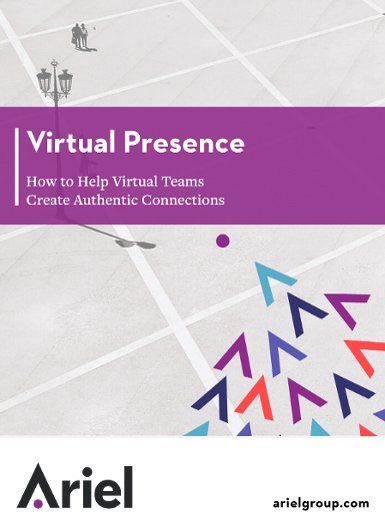Buzzword Buzzkill: Make the Workplace Jargon Stop

You are creating a bubble and it’s hard for anyone, especially new employees, to be in the community because they don’t understand what the community is about.
Jargon. We all get lost in it, and yet, workplaces still use it. And the more we use it, the less inclusive a workplace environment can be. Let me illustrate with an example I heard from a client:
We recently hired a new employee who’s an early career professional and a millennial. He had so much passion in interviews but his manager reported that in team meetings, he’s quiet. He’s not speaking up and he’s not taking the lead on projects. His manager asked if he any questions on his assignments and he said no, but employees shared that after the meeting, he asked them instead.
I decided to follow up with him directly to see what was going on. He told me there’s so much workplace jargon that he feels he should know, but doesn’t yet. Half the time he doesn’t know what people are talking about and he doesn’t feel empowered to ask questions in meetings, either. His biggest fear is looking dumb in front of his manager.
I thought about my own career. I’ve been on calls where the interviewers tossed jargon left and right: “We do a lot with KPIs to ensure our MQLs are solid. The DT and BAM teams will then cross-reference those with any MCs that are needed. Any questions on our process?”
How about SOS?
I’ve learned from experience how tough it can be as a new employee dealing with feeling left out, and I’ve heard those same problems echoed from many organizations. Here are some ways to kill the workplace jargon before it kills your organization’s morale.
1. Encourage—and support—questions.
It’s typical to have questions as a new hire—and lots of them. What’s been helpful for me is managers or leaders who have an “open door” policy and truly stick to it. That way, whenever a teammate has a question, they don’t have to feel like it’s a big deal to ask it.
I’ve been in meetings where when someone raises a question, it’s immediately clear it wasn’t welcome. People can become defensive. Arms are crossed. Audible sighs are heard. It’s impossible not to feel shut down.
Make it a company policy to be available for questions, and to be more self-aware about defensive tactics (including body language) when questions do arise. If people are too afraid to ask questions, your employees—and your organization—will suffer.
2. Think about user experience.
Imagine searching online for a specific broom you want to buy but can’t remember the brand of. You type “broom” into the browser several times but it doesn’t show up in the search results. You keep trying to rack your brain until suddenly, you remember it. You type “Company X Broom,” and it appears—only then do you realize that Company X doesn’t call it a “broom.” They call it a “Magic Sweeping Machine.” Why on earth would they do that when the rest of the world calls these items brooms?!
That’s what jargon does in the workplace. At one time, a company was hip and cool if they had their own jargon that only they used. Now, it’s obvious that this isn’t helping anyone on the outside understand anything you’re talking about.
If you’re not a marketer, you may not think in these “search” terms, but it’s important to realize how much jargon impacts employees. You are creating a bubble and it’s hard for anyone, especially new employees, to be in the community because they don’t understand what the community is about. Try eliminating workplace jargon wherever possible to create a more welcoming, inclusive environment.
3. Find ways to boost your employees’ confidence.
No employee wants to feel like a burden to their employer. Using workplace jargon subconsciously disrespects their intelligence. The underlying “you should know this, dummy!” can kill employees’ confidence.
Make sure managers are recognizing achievements (even small ones!) and being specific about what employees are doing right. This can help employees feel more comfortable about the state of their personal brand at the company. No one wants to look stupid, and it’s ten times worse if there’s a perceived failure in their work. However, if they are rocking it and know their manager is in their corner, they will be more likely to speak up and ask questions.
A good manager will encourage and coach employees through their mistakes—not reaffirm their feelings of inadequacy.
Those who use workplace jargon like to claim that it’s “being a part of the culture” or something their team does, but to everyone else it can feel like “us vs. them.” If you want inclusion to thrive in your workplace, you need to stop the jargon in its tracks.
To learn more about how to write, speak, sell, and lead with confidence, contact the Ariel team today.
